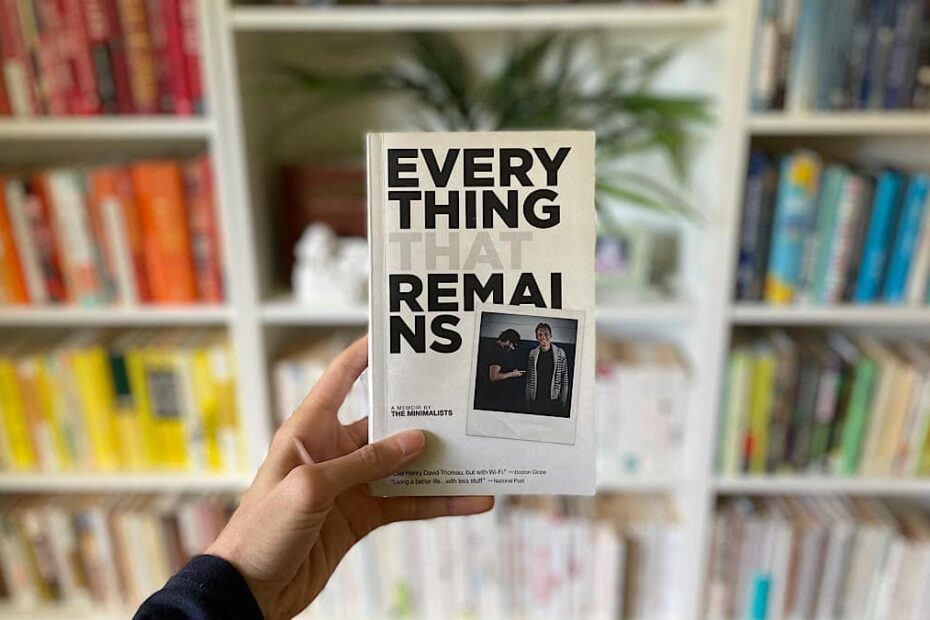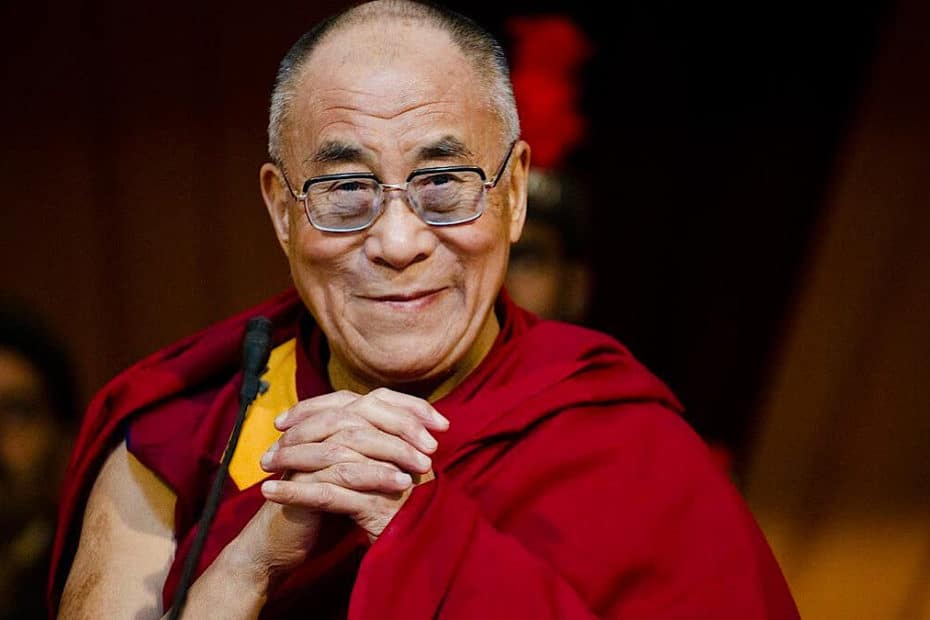“We’re here to connect. Love, time, death. Now these three things connect every single human being on earth. We long for love, we wish we had more time and we fear death.” ~ Howard Inlet (Will Smith), Collateral Beauty
“The difference between great people and everyone else is that great people create their lives actively, while everyone else is created by their lives, passively waiting to see where life takes them next. The difference between the two is the difference between living fully and just existing.” ~ Michael E. Gerber
Peace Is Every Step: The Path of Mindfulness in Everyday Life

Book Overview: In the rush of modern life, we tend to lose touch with the peace that is available in each moment. World-renowned Zen master, spiritual leader, and author Thich Nhat Hanh shows us how to make positive use of the very situations that usually pressure and antagonize us. For him a ringing telephone can be a signal to call us back to our true selves. Dirty dishes, red lights, and traffic jams are spiritual friends on the path to “mindfulness”—the process of keeping our consciousness alive to our present experience and reality. The most profound satisfactions, the deepest feelings of joy and completeness lie as close at hand as our next aware breath and the smile we can form right now.
Post(s) Inspired by this Book:
- How To Live More Mindfully – The Fourteen Mindfulness Trainings of the Order of Interbeing
- How to Handle Your Anger – A Mindfulness Exercise from Thich Nhat Hanh
- Pillow Punching – Good or Bad for Anger Management?
- Thich Nhat Hanh Quote on the Present Moment and Appreciating the Flower When It’s Shown To You (Beyond the Quote 238/365)
Understanding the Dynamics of a “Perfect” Relationship — An Excerpt from The Mastery of Love
The following is an excerpt from the book, The Mastery of Love by Don Miguel Ruiz. A perfect relationship is something that can only be defined by you—but your dog can certainly help show you the way. I’ll turn it over to don Miguel Ruiz to explain. Enjoy!
Read More »Understanding the Dynamics of a “Perfect” Relationship — An Excerpt from The Mastery of Love
“Enlightenment, peace, and joy will not be granted by someone else. The well is within us, and if we dig deeply in the present moment, the water will spring forth. We must go back to the present moment in order to be really alive.” ~ Thich Nhat Hanh, Peace is Every Step
“We can smile, breathe, walk, and eat our meals in a way that allows us to be in touch with the abundance of happiness that is available. We are very good at preparing to live, but not very good at living. We know how to sacrifice ten years for a diploma, and we are willing to work very hard to get a job, a car, a house, and so on. But we have difficulty remembering that we are alive in the present moment, the only moment there is for us to be alive. Every breath we take, every step we make, can be filled with peace, joy, and serenity. We need only to be awake, alive in the present moment.” ~ Thich Nhat Hanh, Peace is Every Step
12 Minimalist Quotes from Everything That Remains by The Minimalists
Excerpt: Minimalism is about reprioritizing what ‘fills’ with what ‘fulfills’ your life. These Minimalist quotes from Everything That Remains can help.
Read More »12 Minimalist Quotes from Everything That Remains by The Minimalists
The Mastery of Love [Book]

Book Overview: In The Mastery of Love, Don Miguel Ruiz illuminates the fear-based beliefs and assumptions that undermine love and lead to suffering and drama in our relationships. Using insightful stories to bring his message to life, Ruiz shows us how to heal our emotional wounds, recover the freedom and joy that are our birthright, and restore the spirit of playfulness that is vital to loving relationships.
Post(s) Inspired by this Book:
- 12 Empowering Don Miguel Ruiz Quotes from The Mastery of Love
- Don Miguel Ruiz Quote on Creating the Perfect Relationships—Starting With The One You Have With Yourself (Beyond the Quote 66/365)
- Emotional Poison in Relationships — What It Is and How To Stop The Cycle [Excerpt]
- So, You Want the Perfect Relationship? Brace Yourself… Because Your Dog is About to School You.
- On Becoming A Millionaire In Love—A Short Story About Self-Love and Self-Worth [Excerpt]
“Life isn’t meant to be completely safe. Real security, however, is found inside us, in consistent personal growth, not in a reliance on growing external factors. Once we extinguish our outside requirements for the things that won’t ever make us truly secure—a fat paycheck, an ephemeral sexual relationship, a shiny new widget—we can shepherd our focus toward what’s going on inside us, no longer worshiping the things around us.” ~ The Minimalists, Everything That Remains
“We hold on to jobs we dislike because we believe there’s security in a paycheck. We stay in shitty relationships because we think there’s security in not being alone. We hold on to stuff we don’t need, just in case we might need it down the road in some nonexistent, more secure future. If such accoutrements are flooding our lives with discontent, they are not secure. In fact, the opposite is true. Discontent is uncertainty. And uncertainty is insecurity. Hence, if you are not happy with your situation, no matter how comfortable it is, you won’t ever feel secure.” ~ The Minimalists, Everything That Remains
“I’d been running in one direction as fast as I could, chasing this abstract thing called happiness, but I’d been running the wrong way. I was sprinting east looking for a sunset, when all I really had to do was turn around and walk—not run, just walk—in the other direction.” ~ The Minimalists, Everything That Remains
“The first jump – that’s the most difficult part. Because you’ll always have some people who say things like, ‘Why would you do that?’ or ‘How can you do that?’ or ‘If you could do that thing you want to do – write that novel or become an entrepreneur or travel the world or whatever – then everyone would be doing it.’ It’s important to remember that these naysayers are just projecting. It’s that ingrained fear we all have, a natural instinct. We tend to be afraid of bucking the status quo. But when you do take that first jump, it actually becomes terrifying to do ‘normal’ things, because you realize what a risk it is to give up your entire life just to be normal.” ~ The Minimalists, Everything That Remains
“Desire always begets more desire. And thus the American Dream is a misnomer, a broken shiny thing, like a new car without an engine. There is blood on the flag, our blood, and in today’s world of achieving and earning and endlessly striving for more, the American Dream really just seems to imply that we are fat and in debt, discontented and empty, every man an island, leaving a void we attempt to fill with more stuff.” ~ The Minimalists, Everything That Remains
15 Deep Dalai Lama Quotes From The Art Of Happiness on Happiness, Suffering, and Purpose in Life
Excerpt: The following 15 Dalai Lama Quotes are from his book, The Art Of Happiness, and focus on Happiness, Suffering, and Purpose in Life. Enjoy!
Read More »15 Deep Dalai Lama Quotes From The Art Of Happiness on Happiness, Suffering, and Purpose in Life
The Art of Happiness [Book]
Book Overview: Through conversations, stories, and meditations, the Dalai Lama shows us how to defeat day-to-day anxiety, insecurity, anger, and discouragement. Together with Dr. Howard Cutler, he explores many facets of everyday life, including relationships, loss, and the pursuit of wealth, to illustrate how to ride through life’s obstacles on a deep and abiding source of inner peace. Based on 2,500 years of Buddhist meditations mixed with a healthy dose of common sense, The Art of Happiness is a book that crosses the boundaries of traditions to help readers with difficulties common to all human beings.
Buy from Amazon! Listen on Audible!
Great on Kindle. Great Experience. Great Value. The Kindle edition of this book comes highly recommended on Amazon.
Post(s) Inspired by this Book:
- 15 Dalai Lama Quotes That Will Make You Think Deeply About Happiness, Suffering, and the Purpose of Life.
- Dalai Lama Quote on Remembering A Person After They Pass (Beyond the Quote 144/365)
- The Dalai Lama Quote on Handling Problems by Zooming Out and Looking From a Broader Perspective (Beyond the Quote 60/365)
- The Dalai Lama on Managing Problems [VIDEO]
“Our ultimate aim in seeking more wealth is a sense of satisfaction, of happiness. But the very basis of seeking more is a feeling of not having enough, a feeling of discontentment. That feeling of discontentment, of wanting more and more and more, doesn’t arise from the inherent desirability of the objects we are seeking but rather from our own mental state.” ~ Dalai Lama, The Art of Happiness







